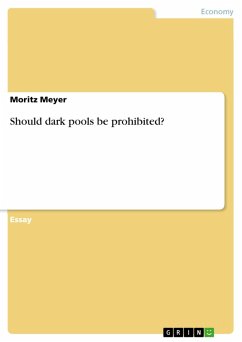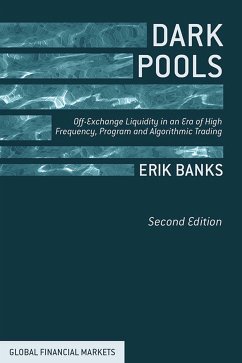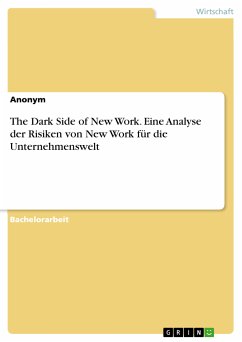Essay from the year 2017 in the subject Business economics - Banking, Stock Exchanges, Insurance, Accounting, grade: 68%, University of Strathclyde, language: English, abstract: Should dark pools be prohibited? Discuss this statement by exclusively presenting arguments that this is not the case. A dark pool is defined by Banks (2010) as an alternative trading system for the anonymous trade of standardised financial products. Pan (2017) specifies it as mainly an equity trading venue. The trades in a dark pool are, according to Ye (2016), concluded outside of any display order. This differs from lit markets, such as traditional stock exchanges, as the trade, according to Comerton-Forde and PutninS (2015), is only made public after it has been executed. Dark pools are a highly unregulated market sector and not subjected to the rules and regulations of the European stock exchanges, as Baxter (2017) highlights. Petrescu and Wedow (2017) therefore assumed that the key feature of dark pools is less transparency compared to lit markets, i.e. market participants do not have an overview of the supply and demand of the products. The traders purchase and sell on dark pools without showing their identities or exposing transactions to the public market; therefore, the available liquidity in the dark pool is anonymous, as pointed out by Kratz and Schöneborn (2014). The price of a successful order is calculated, as claimed by Banks (2014), as the midpoint of the bid and offer. Zhu (2014) states that the execution of an order in a dark pool is not guaranteed, unlike the traditional stock exchange.
Dieser Download kann aus rechtlichen Gründen nur mit Rechnungsadresse in A, B, BG, CY, CZ, D, DK, EW, E, FIN, F, GR, HR, H, IRL, I, LT, L, LR, M, NL, PL, P, R, S, SLO, SK ausgeliefert werden.









